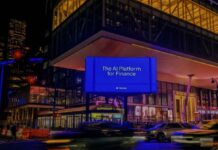 Despite fears about artificial intelligence taking jobs, people, ideas and innovation will grow in importance as the century unfolds
Despite fears about artificial intelligence taking jobs, people, ideas and innovation will grow in importance as the century unfolds
By Robert McGarvey
Columnist
LONDON – TECH – The 21st century is going to be very different. If you’re in business, a knowledgeable and skilled workforce will be essential. Despite the fears about artificial intelligence taking jobs, people, ideas and innovation are becoming more important as the century advances, not less.
It’s now obvious that we live in a largely digital, technology-driven knowledge economy. The most significant driver of change behind this radical transformation is the rise of intangibles.
World Bank research suggests that over 80 per cent of the value of publicly traded companies today is derived from intangibles, and only 20 per cent comes from traditional tangible assets like plant, equipment and machinery. It’s shocking to think that a few short decades ago, these numbers were reversed.
Intellectual capital in the form of productive innovation like artificial intelligence capabilities or specialized algorithms – as well as software, patented technology, proprietary business processes, brands and trademarks – are now vastly more important business assets than plant, equipment and machinery.
More importantly, widespread network connectivity and digitization are revolutionizing the competitive landscape, generating new strategic imperatives for senior management. A successful industrial company focused on developing physical products while maintaining high-profit margins and market share. Today, the most successful companies focus on services, building networks of value and cutting marginal costs to saturate the market as rapidly and deeply as possible.
This digital economy has so altered the nature of value creation that it’s obliterating core assumptions in the science of economics. It has overturned long-held beliefs in the presumed iron laws of scarcity, supply and demand, and significantly altering what economists call the elements of production.
For example, it was commonly accepted by economists of the neoclassical school that commercial value is generated when capital is combined with labour in a market economy. For almost two centuries, capital has been defined by economists as all the physical manufactured elements that are involved in the factory model of production. Labour is simply the means to mobilize real capital for productive purposes.
This fundamental idea was derived from practical experience during the industrial era and has been a foundational assumption of neoclassical economics since the 19th century.
Today, the situation could hardly be more different. In the intangible economy, ideas, relationships and social network connections are major drivers of value. This value revolution has elevated people from being mere appendages to the industrial machine to a principal source of value creation. Human capital is now a vital cog in the modern economy.
I experienced this change in sentiment first hand, a few years ago. As a consultant to the mining industry, it was common for me to encounter senior management teams in constant dispute with their labour forces. Tempers were short and union bashing was common.
Then, a few years ago, the world changed. In one case, a mining operation was losing key experienced personnel to more international operators who paid more. Senior management’s first response was to slam the unions and fire anyone who even talked to a recruiter.
The problem was that the money was so much better that the personnel losses kept accelerating. The chief executive officer then did something unprecedented: he reversed course. He started by treating his human capital like an asset and putting a number on the value of his experienced workforce.
The human resources department was tasked with valuing the difference in production between a fully experienced workforce and an equally qualified but inexperienced one. The difference was huge – more than $40 million a year.
And this wasn’t the value of the company’s human capital asset, this was just the annual return. The value of the asset was significantly larger.
The company began to treat its employees much differently. It established a new policy that allowed experienced staff to take two-year leaves of absence. It set up a labour consulting arm and actively encouraged employees to go abroad, earn big money and return with full seniority. The one qualification was that experienced staff had to train their replacements.
Quantifying the value of their human capital totally transformed the value equation for this mining operation, improving morale and productivity almost overnight.
This kind of transformation is becoming more common as the knowledge economy evolves.
Of course, artificial intelligence will further revolutionize the workplace. But the trend is clear: human capital is growing in importance and its impact will increase as the century unfolds.
Robert McGarvey is chief strategist for Troy Media Digital Solutions Ltd., an economic historian and former managing director of Merlin Consulting, a London, U.K.-based consulting firm. Robert’s most recent book is Futuromics: A Guide to Thriving in Capitalism’s Third Wave.
© Troy Media
The views, opinions and positions expressed by all Troy Media columnists and contributors are the author’s alone. They do not inherently or expressly reflect the views, opinions and/or positions of Troy Media.







